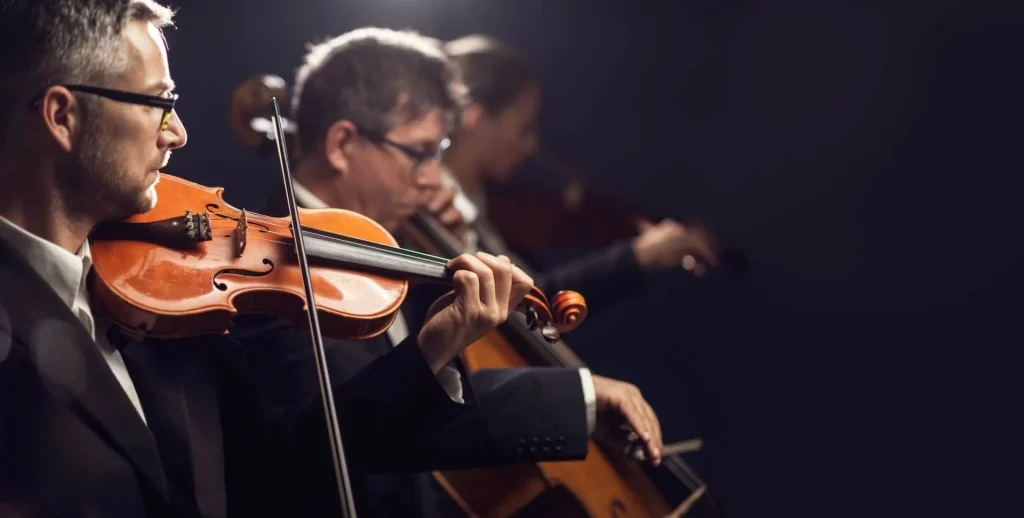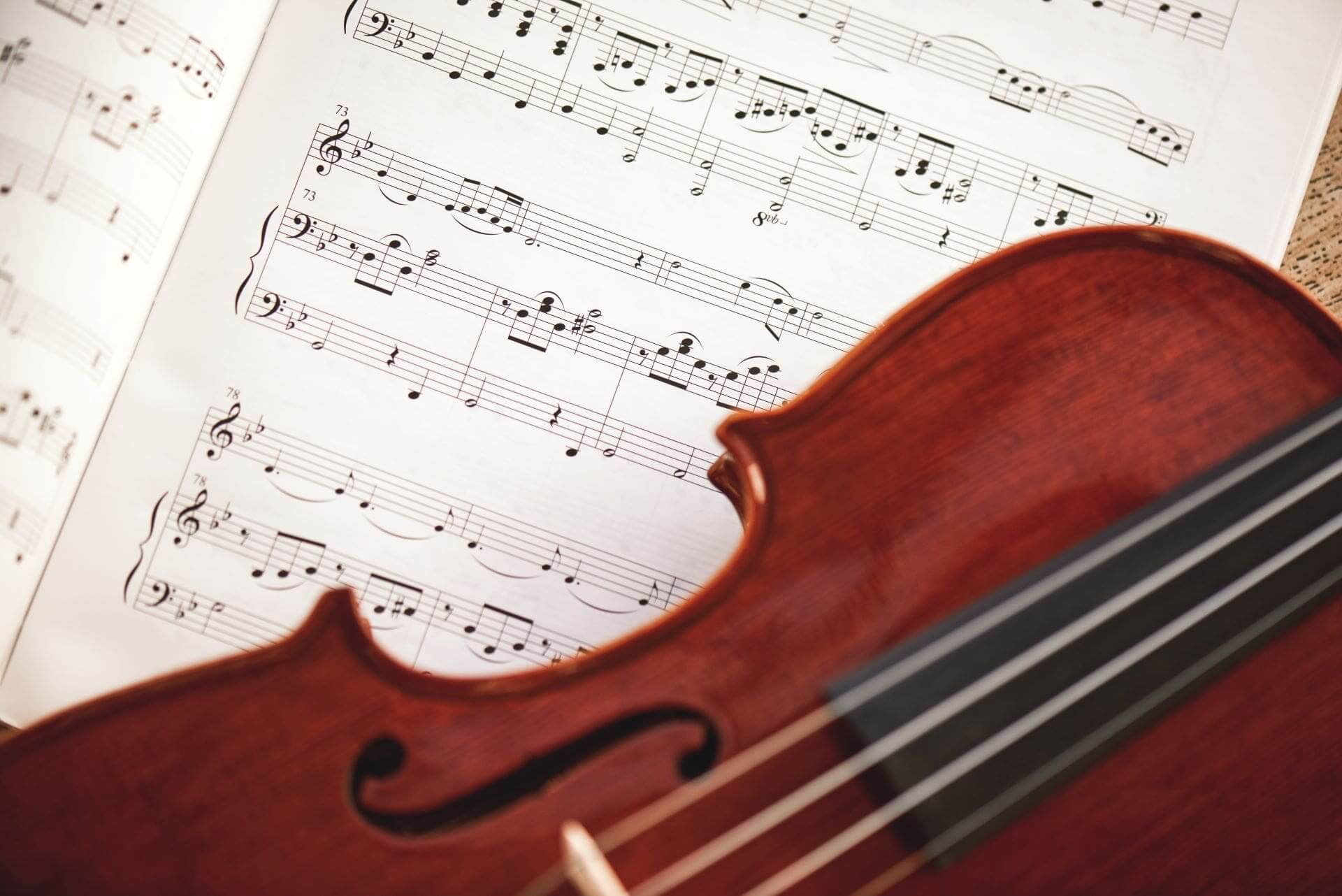Mainstream music, like the ones you typically hear around subdivisions along Daang Hari, sounds a lot different than what Classical music – compositions from Beethoven, Tchaikovsky, and Mozart, to name a few – sounds like. With how old Classical music is in terms of age, some may say, perhaps jokingly, that listening to Classical music is fancy and refined.
However, this may be a decent description. Classical music itself is detailed in its structure and complexity. With this, there is hearsay stating that playing Classical music for babies will somehow make the music make babies smarter. But how does classical music help babies? This is what this blog will discuss.

What Is Classical Music?
On the topic of Classical music, the popular perception is to imagine classical instruments, such as violins, pianos, flutes, cymbals, and the like, being played in harmony by men and women in formal attires in an opera house. And if this is the kind of image that you also have of Classical music, then you are not extremely far off.
To explain it more properly, Classical music is considered “art music,” which are musical compositions with “high phonoaesthetic value,” where “phono” means sound and “aesthetic” means “sense of perception.” Given this, Classical music is deemed as such because of the standards that are set for following the conventions that have been established for this kind of music.
Why is Classical music considered important?
Even if the established rules or conventions are what is followed for creating compositions for Classical music, many composers presented the limitlessness of creativity in pushing the boundaries of the level of complexity and pleasantness that Classical music compositions can have. It is because of this that Classical music is deemed part of “high culture,” or culture that is concerned with the best of the best for the creative works of human civilization.
Therefore, the importance of Classical music is in how it is an embodiment of the best examples of human creativity in art. Some interpretations say that it is through music that an image of the society in the composer’s time period is reflected through the content of the music. For Classical music, with its established structures, forms, and conventions, its ability to evoke emotions from audiences is deemed to be worth admiring.
Relating Classical Music to Babies
With all of this said, we can forward the following question: What kind of music can we let your baby, your little one, listen to? It is generally known, after all, that music is an art that can be enjoyed by everyone. Music comes in different genres that satisfy the tastes that are unique to every person; but what about babies?
As stated previously, the high regard bestowed upon Classical music is because of how composers were able to be creative and innovative while conforming to the conventions established for the music genre in question. In achieving this, many of the compositions produced were not only elaborate in structure and complexity, but they were also pleasant to listen to.
Listening to Classical music, therefore, instills an appreciation for music that is complex in structure yet pleasant to listen to. In relation to this, could Classical music make babies develop a level of appreciation for complex music structures? And what effect would this bring to your baby if you let them listen to Classical music? Does Classical music make your little one smarter?

Should Your Baby Should Listen to Classical Music?
The Mozart Effect
The appreciation for Classical music, which is music that contains pleasant sounds from complex structures, and the gaining of benefits due to listening to Classical music, said to be evident in children, has been coined as the term “Mozart Effect.” The Mozart Effect is a phenomenon that was coined in the 1990s out of observations collected from exposing young people, from college students to babies, to Classical music, specifically the works of Wolfgang Amadeus Mozart.
Essentially, when letting a child listen to Mozart, it was observed that there was an increase in spatial intelligence directly after the child listened to Mozart. Spatial intelligence refers to the ability to understand, process, and remember visual information. Analysis of this observation is related to how listening to Mozart’s compositions leads to brain stimulation in the child listening to the music.
Some observations from studies
Some conducted experiments testing the concept of the Mozart Effect typically note that it is spatial intelligence that is most beneficial after listening to Mozart’s music. This may be related to how compositions in Classical music push the boundaries for creativity within the standards of complex structures established in Classical music; and given how Mozart is deemed as one of the best composers of Classical music, having Mozart specifically as music for babies is bound to induce the Mozart Effect.
Furthermore, when it comes to engaging children with Classical music, improvements in intelligence and cognitive reasoning are a common observation. This would make sense since understanding music would require understanding some form of structure or pattern. And engaging in such mental activities is bound to stimulate the brain. Given this, perhaps you can consider letting your children engage in music more, whether it’s in your house or your car driving through subdivisions along Daang Hari.
Segue to Classical Music Month
Classical Music Month is a concept that was established in the United States, although this does not mean that we should not celebrate Classical music as well. Humans have a natural inclination to detect rhythm, particularly sounds that are pleasant to hear. Hence, there is evidence of musical compositions created by humans that date back many centuries.
One of the best examples of human musical compositions, however, is the compositions in Classical music. To reiterate, Classical music has its own specific form or structure, and it typically prioritizes organizing different sounds altogether to create harmony. And in creating this harmony comes the different ways that it can be achieved; and this is where the creativity of Classical music composers comes in.
Let your baby listen to Mozart
A good example of Classical music would be Mozart’s compositions. With this said, using Classical music as music for babies is observed to improve their spatial intelligence through brain stimulation from the music. Hence, if your baby were to listen to Classical music more often, perhaps it may benefit them greatly as they grow up. In celebrating Classical music, perhaps you can let your little one listen to Mozart as you drive through subdivisions along Daang Hari.
Read more: Get Ready for the Future With These Baby Room Ideas


